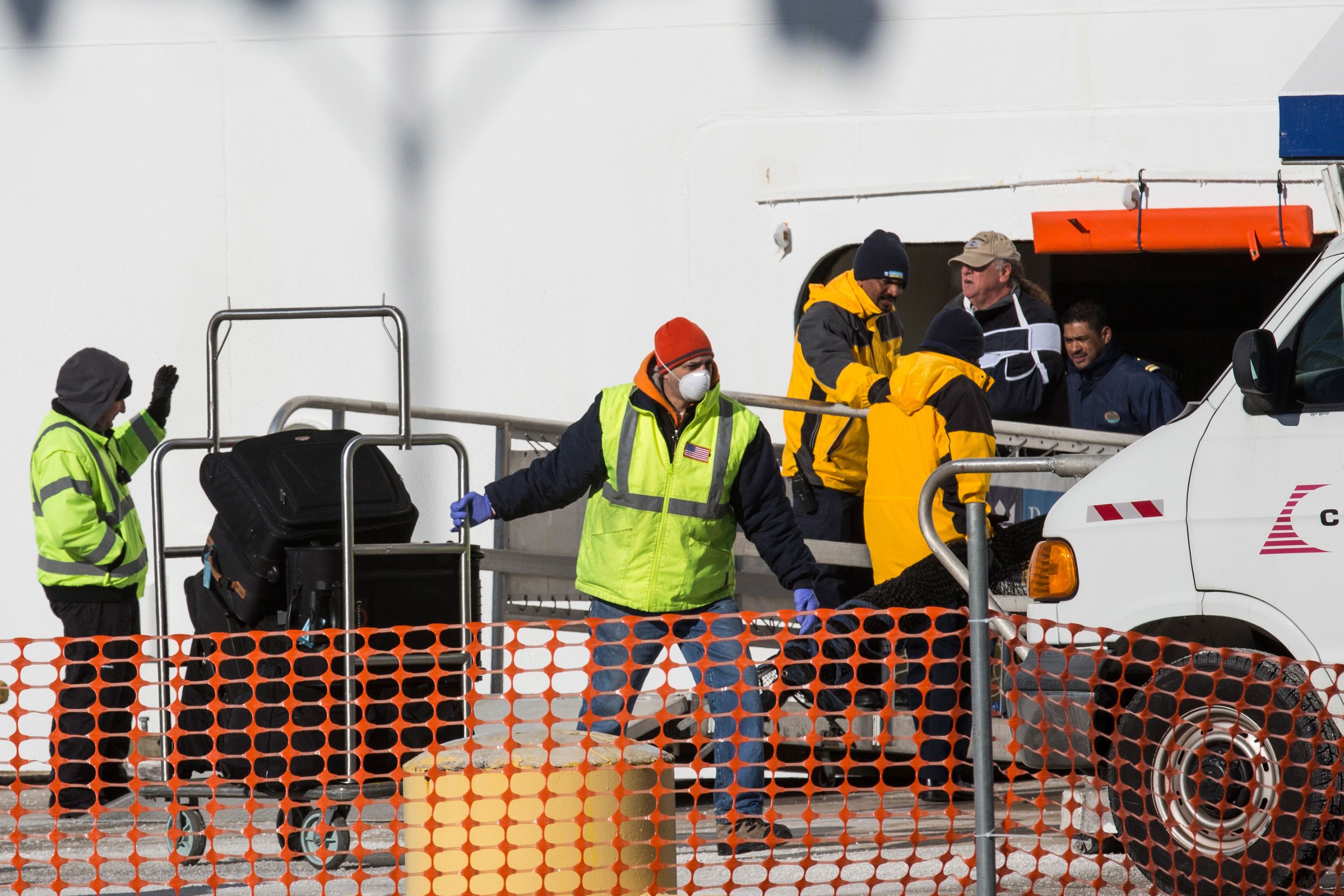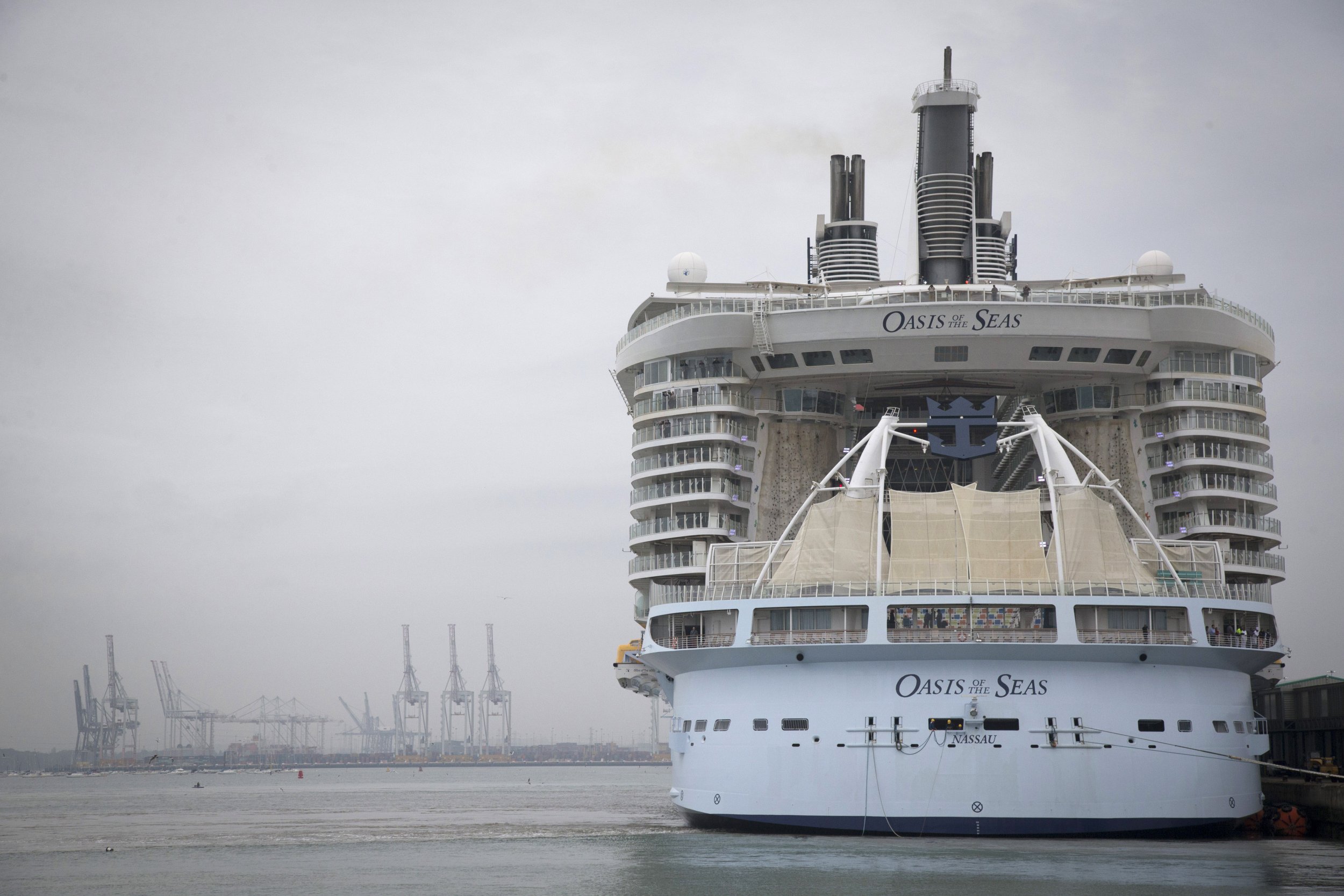Table Of Content

It operates hospital ships since 1978 and also has currently the world's largest hospital ship (excluding navy vessels) - MV Africa Mercy. Some cruise lines offer hand-sanitizer dispensers near the ship's restaurants, Lido/pool deck areas and other more crowded public spaces in their effort to keep a lid on sickness outbreaks. Quarantining the ill passengers and crew to their cabins is mandatory (at least for 48 hours) to slow the outbreak's spread.
Norovirus outbreaks 2020 reports
Usually, a pre-embarkation health advisory is distributed to all boarding passengers. Additional med staff is sent to the ship in port to assist the disembarkation of infected passengers. Another possibility is the cruise ship to cancel all the itinerary's foreign ports of call and to return to its US home-port before the end of the voyage. If an unvaccinated or under-vaccinated passenger or crew member contracts the virus and brings it on board, other vulnerable people can get sick, Chen explains. (A ship was quarantined off the coast of St. Lucia in 2019 when measles was reported on board.) The same goes for chicken pox (varicella), which is similarly caused by a highly contagious virus that can circulate among unvaccinated people.

If you have COVID-19
That said, norovirus outbreaks on ships account for only 1 percent of all such reported cases. Medical staff on cruise ships under U.S. jurisdiction are required to report gastrointestinal illness cases to the Vessel Sanitation Program when at least two percent of people onboard are infected. Everyone—including fellow passengers and crew—wants you to be healthy on your cruise. Here's how cruise ships prevent illnesses, and what happens if you do get sick or injured. That’s how many people have been infected with the norovirus while aboard cruise ships this year, according to CDC data.
Illness outbreaks on cruise ships (annual statistics)
Sanitizer is better than nothing, but washing with soap and water does a better job—though here are the ways you might be washing your hands wrong. Aboard many cruise ships, you’ll be asked to sanitize your hands when you enter the dining room. Washing your hands after you leave the restaurant or bar minimizes the spread of your germs too. If you have a serious problem like a heart attack or a stroke or need surgery, the ship’s crew will do their best to treat and stabilize you until you can get to a facility at the nearest port that has the resources you need.
C.D.C. Investigating Gastrointestinal Illness on Luxury Cruise Ship - The New York Times
C.D.C. Investigating Gastrointestinal Illness on Luxury Cruise Ship.
Posted: Thu, 08 Feb 2024 08:00:00 GMT [source]
news Alerts
There's nothing like a stomach virus to ruin your vacation, as hundreds of cruise ship passengers have unfortunately learned this year. In some circumstances, additional public health precautions, such as returning to port immediately or delaying the next voyage, may be considered to help ensure the health and safety of onboard travelers or newly arriving travelers. To reduce the likelihood of onboard transmission of SARS-CoV-2, pre-embarkation testing is recommended for all passengers, including those on back-to-back sailings [4]. Completion of testing closer to the time of embarkation (within 1 to 2 days) maximizes the benefit of preventing introduction of infectious persons onboard. Ships that choose to use COVID-19 antigen tests should follow FDA guidance.
Managing Cruise Travelers with ARI and Contacts while on Board
Illness outbreak spreads aboard Queen Victoria cruise ship, leaving 154 sick - ABC News
Illness outbreak spreads aboard Queen Victoria cruise ship, leaving 154 sick.
Posted: Fri, 09 Feb 2024 17:24:09 GMT [source]
The program enforces strict health and safety guidelines, covering the cleaning of high-touch areas and the management of food storage in freezers, refrigerators, and galleys. Land-based operations ("Field Service") include mobile clinics providing screening for potential surgery patients, healthcare, dental care, also mental health programs, infrastructure projects. The navies of USA, UK, Australia, China, France, Italy, Spain, Argentina, and Japan have some classes of military ships fitted with onboard hospitals.
Outbreaks 2017 reports
An infected person is the most contagious when symptoms are present and within the first few days of feeling better. According to the Minnesota Department of Health, symptoms of norovirus infection include vomiting, nausea, diarrhea, stomach pain, muscle aches, low-grade fever and headache. These symptoms usually appear between one to two days after contracting the virus but can appear as early as 12 hours after exposure. Cases typically last between 24 and 48 hours, though the illness may be more severe in young children and older adults, according to the Arizona Department of Health Services. Severe cases usually involve dehydration due to loss fluid—death is rarely ever a result. To avoid getting norovirus while at sea, it’s recommended passengers thoroughly wash their hands more frequently than they typically would, stay hydrated especially on hot days and avoid eating ice, uncooked vegetables and fruit with edible skin.
Reducing the Spread of Viral Respiratory Infections
In 2016, the number of reported illness outbreaks on cruise ships was 23. The total number of infected was 2504 (of those 2378 passengers and 126 crew). In 2017, the number of reported illness outbreaks on cruise ships was 21.

Most vessels have received scores in the high 90s — only one cruise ship, the MSC Seaside, has failed the CDC's sanitation inspection so far this year. The vessel received an unusually low score of 67, nearly 20 points below the agency's passing grade. Cruise operators should ensure passengers and crew have access to well-stocked hygiene stations with soap and water and/or hand sanitizer, tissues, paper towels, and trash receptacles. Medical centers on cruise ships can vary widely depending on ship size, itinerary, length of cruise, and passenger demographics. Cruise ship operators should consider denying boarding for passengers who test positive for infectious viral etiologies during pre-embarkation screening, as well as those who tested positive for COVID-19 within 10 days before embarkation.
The authority said that the passengers who were due to start their cruise Sunday would not be able to do so that day and that they would have to be relocated to available hotels. A lot of whether or not you'll feel ill depends on how calm the seas are and where on the ship you're located. If you think you might be susceptible to seasickness, choose a larger ship where you'll be less likely to feel the movement, and book a room on a middle deck, midship (not too far to the front or back). Make sure it's got a window or balcony that will allow you to stare at the horizon, which helps your body to regain its equilibrium. A good indicator of whether or not you'll be seasick is whether or not you've experienced motion sickness on other forms of transportation.
Other typical onboard equipment includes defibrillators, ventilators, cardiac monitors and stretchers. If you’re planning a trip on one of the best cruise lines or one of the most affordable ones, you need to know what to do if you feel under the weather on a cruise ship, whether it’s a little sea sickness or a more serious illness or injury. Consider this advice some of the essential cruise tips that all passengers should keep in mind before they board. Cruise ships are required to report gastrointestinal illness cases to the CDC before arriving from a foreign port, or when 2% of the crew and passengers have the illness.
Someone who has a heart attack or a stroke might be initially treated on board with a defibrillator or thrombolytic medications (which can help break up a blood clot). However, cruise ships’ infirmaries are not hospitals, and they are not equipped to treat every health problem. Should the ship’s doctor decide that you need care at an onshore hospital, they’ll keep you as safe and comfortable as possible until you get there. Whether you prefer family cruises or adults-only cruises, no one wants to get sick while they’re on vacation. This is especially true when you’re on a ship—after all, it’s tricky to cut your trip short if you’re floating in the middle of an ocean.
Plus, falling ill on a cruise ship can have bigger implications these days. There are considerations related to cruise ships and COVID-19 that are designed to keep everyone aboard safe and healthy. Royal Caribbean International's 'Oasis of the Seas' cruise ship is seen at Port Canaveral, Florida ... [+] on January 12, 2019, after returning a day early from a seven-night Caribbean cruise when over 400 passengers and crew members suffered gastrointestinal illness due to a suspected Norovirus outbreak.

No comments:
Post a Comment